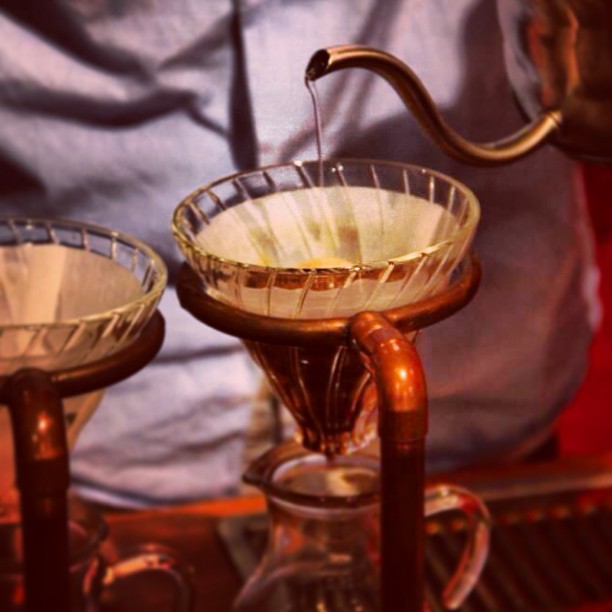Where does the best coffee in the world come from? Jamaican Blue Mountain Coffee

Almost everyone who has heard of Jamaica Blue Mountain Coffee knows that it is the most expensive coffee in the world, but not everyone knows why, like Rolls-Royce cars and violins made by Stradivari, when something gains the reputation of "the best in the world", this reputation often makes it its own character and becomes an eternal myth.
The best Blue Mountain Coffee is undoubtedly one of the best coffees available. Although the price can ensure an adequate supply of Blue Mountain coffee, it does not guarantee the best flavor of the coffee. It is also worth noting that this kind of coffee is more expensive to drink than it looks. In order to taste his best flavor, you must put in more coffee beans than when drinking other coffee, otherwise the flavor will not live up to its name. So the real cost of reflecting the flavor is that it has to add 10% more coffee beans than the coffee whose price is second only to it.
It is said that the real Blue Mountain coffee is made from the best local raw coffee beans, which is the pleasure of tasters. Its flavor is rich, balanced, fruity and sour, and can meet people's various needs. In addition, the flavor of high-quality fresh Blue Mountain coffee is particularly long-lasting, as drinkers say-endless aftertaste.
It is necessary to carefully understand the myth of Blue Mountain Coffee, because the image of the past is often inconsistent with the reality of today. In 1725, Sir Nicholas Roth brought the first Blue Mountain Coffee from Martinique to Jamaica and planted it in the St. Andrews area. Today, St. Andrew is still one of the three major producers of Blue Mountain Coffee, while the other two are Portland and St. Thomas producing area. In eight years, Jamaica exported more than 375 tons of pure coffee. In 1932, coffee production reached its peak and more than 15000 tons of coffee was harvested.
But in 1948, the quality of coffee had declined and Canadian buyers refused to renew their contracts, so the Jamaican government set up the Coffee Industry Committee to save the fate of top coffee. By 1969, the situation had improved because the use of Japanese loans had improved the quality of production, thus ensuring the market. Even in 1969, Japanese coffee drinkers were willing to pay a deposit for the coffee, but now it has reached the point of frenzy.
By 1981, about 1500 hectares of land in Jamaica had been reclaimed for coffee cultivation, followed by investment in another 6000 hectares of coffee land. In fact, today's Blue Mountain area is a small area with a planting area of only 6000 hectares, and it is impossible to grow all the coffee marked "Blue Mountain" there. Another 12000 hectares are used to grow two other types of coffee (non-Blue Mountain Coffee): Alpine Top Coffee (High Mountain Supreme) and Jamaican Superior Coffee (Prime Washed Jamaican).
The real Blue Mountain Coffee is one of the most advantageous coffee growing conditions in the world. Jamaica's weather, address structure and topography provide a unique ideal place. The ridge across Jamaica extends to the east of the island, and the Blue Mountains are more than 2100 meters high. The cool weather, foggy weather and frequent rain reconcile the fertile land of Rain Water, where people use mixed planting to grow coffee next to banana and pear trees on terraces.
Some small estates also grow Blue Mountain Coffee, such as Wallenford Manor, Silver Mountain Manor and Martinez's Atlanta Manor, which are also small-scale plantations, many of which are small landowners whose families have been working on this land for two centuries. The coffee industry in Jamaica is facing a series of problems, such as the influence of the whirlwind, the increase of labor costs and the difficulty of mechanized terraced fields. It is difficult to rationalize planting on many small estates and farms.
However, Blue Mountain Coffee is a coffee retailer that values credibility and keeps some coffee in stock anyway. A leading British retailer said: regardless of the price, he will continue to sell Blue Mountain coffee throughout the year because he has many customers who only recognize "Blue Mountain" coffee.
Now, 90% of the post-harvest Blue Mountain coffee is bought by the Japanese. In 1992, Jamaica sold 688 tons of Blue Mountain coffee to Japan, 75 tons to the United States and 59 tons to Britain. Now that the rest of the world can only get 10% of the output of Blue Mountain coffee, regardless of the price, blue mountain coffee is always in short supply. In the UK, Langford Brothers has been the only supplier for many years. Later, the Edmunds Group also received a supply from the Salda Food Company of Jamaica.
The difference in transportation between Blue Mountain Coffee and other coffee is that it is transported in barrels with a capacity of 70 kilograms, which is a replica of Bonifield barrels produced in Guadeloupe in the last century. The barrel was originally used to carry flour shipped from the United Kingdom to Jamaica, usually with a trademark and the name of the manufacturer. The Coffee Industry Council issues certificates for all authentic Jamaican coffee and bears a stamp of approval before export.
The Jamaican government used to insist that all Blue Mountain coffee is roasted in Jamaica to ensure that the quality remains the same. In fact, baking is a fine art, and it takes experience, training and expensive equipment to do a good job. From the consumer's point of view, coffee should be obtained and drunk immediately after roasting. Coffee roasting in Jamaica is unlikely to meet this requirement. Now, Jamaican raw coffee can be exported.
The flavor is very full-bodied, with a long-lasting fruit flavor
It is recommended to bake handcuffs moderately.
Excellent rating
Important Notice :
前街咖啡 FrontStreet Coffee has moved to new addredd:
FrontStreet Coffee Address: 315,Donghua East Road,GuangZhou
Tel:020 38364473
- Prev

Introduction to SCAA Standard Coffee Cup testing equipment
Description of ① cups and bowls: SCAA recommended cups are toughened glass or porcelain cups with a capacity of 207-266ml and 76-89mm lids of any material. All utensils should be clean, odorless, the same specifications and materials (for example, glass and porcelain bowls cannot be mixed with different capacities) [cup test sample preparation] bake 1.
- Next

Jamaica Blue Mountain Coffee is undoubtedly the most famous coffee in the world.
Almost everyone who has heard of Jamaica Blue Mountain Caffeine (Jamaican Blue Mountain) knows that it is the most expensive coffee in the world, but not everyone knows why. Like Rolls-Royce cars and Strawali violins (Stradivarius violin), when something has the best reputation in the world, it looks forward to
Related
- Detailed explanation of Jadeite planting Land in Panamanian Jadeite Manor introduction to the grading system of Jadeite competitive bidding, Red bid, Green bid and Rose Summer
- Story of Coffee planting in Brenka region of Costa Rica Stonehenge Manor anaerobic heavy honey treatment of flavor mouth
- What's on the barrel of Blue Mountain Coffee beans?
- Can American coffee also pull flowers? How to use hot American style to pull out a good-looking pattern?
- Can you make a cold extract with coffee beans? What is the right proportion for cold-extracted coffee formula?
- Indonesian PWN Gold Mandrine Coffee Origin Features Flavor How to Chong? Mandolin coffee is American.
- A brief introduction to the flavor characteristics of Brazilian yellow bourbon coffee beans
- What is the effect of different water quality on the flavor of cold-extracted coffee? What kind of water is best for brewing coffee?
- Why do you think of Rose Summer whenever you mention Panamanian coffee?
- Introduction to the characteristics of authentic blue mountain coffee bean producing areas? What is the CIB Coffee Authority in Jamaica?

